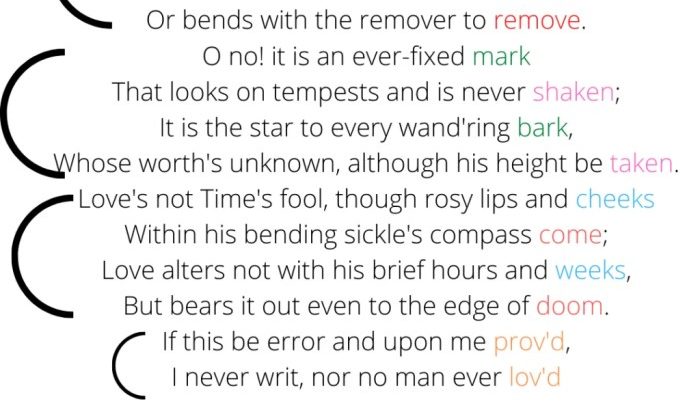A telephone call dorothy parker – Delving into Dorothy Parker’s iconic poem “A Telephone Call,” we embark on a journey through love, loss, and the complexities of human communication. With her signature wit and social commentary, Parker paints a vivid portrait of a longing heart, revealing the bittersweet nature of desire and the poignant sting of unanswered calls.
Through an analysis of the poem’s structure, imagery, and use of literary devices, we uncover the layers of meaning that lie beneath its seemingly simple facade. “A Telephone Call” emerges as a testament to Parker’s brilliance, showcasing her ability to capture the essence of human experience in a few poignant lines.
Dorothy Parker’s Life and Career

Dorothy Parker was an American poet, short story writer, critic, and playwright known for her wit, social commentary, and feminist perspective. Born in 1893, she began her literary career as a drama critic for Vanity Fairmagazine, where she gained a reputation for her sharp wit and incisive observations.
Throughout her career, Parker published several volumes of poetry and short stories, including the collections Enough Rope(1926) and Here Lies(1939). Her work often explored themes of love, loss, and the complexities of modern life, and she became known for her ability to capture the nuances of human experience with both humor and pathos.
Reputation as a Wit and Social Critic
Dorothy Parker’s reputation as a wit and social critic was firmly established through her writing. Her short stories and poems were often infused with satire and social commentary, targeting the hypocrisy and superficiality of high society. Parker’s ability to skewer the social elite with her wit and irony earned her a reputation as a fearless and incisive observer of her time.
“A Telephone Call”
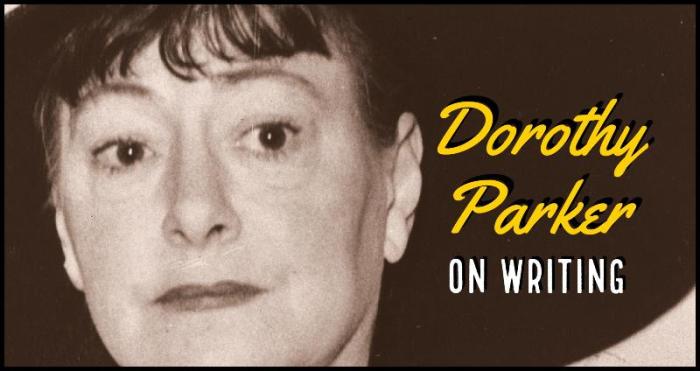
Dorothy Parker’s poem “A Telephone Call” was inspired by a personal experience she had while living in New York City. One evening, she received a late-night phone call from an unknown man who claimed to be a friend of her ex-husband.
The caller’s rambling and disjointed conversation left Parker feeling unsettled and anxious.The poem’s structure is free verse, with no discernible rhyme scheme or meter. However, Parker uses a variety of literary devices to create a sense of rhythm and flow.
For example, she employs repetition, alliteration, and assonance throughout the poem. The poem’s imagery is also striking, with Parker using vivid language to convey the caller’s strange and unsettling behavior.
Use of Imagery
One of the most striking features of “A Telephone Call” is Parker’s use of imagery. She employs a variety of sensory details to create a vivid and unsettling atmosphere. For example, she describes the caller’s voice as “a hoarse whisper” and “a rasping whisper.”
She also uses imagery to convey the caller’s physical appearance, describing him as “a shadow” and “a ghost.” This imagery helps to create a sense of mystery and unease, and it leaves the reader with a lingering sense of dread.
Themes and Motifs
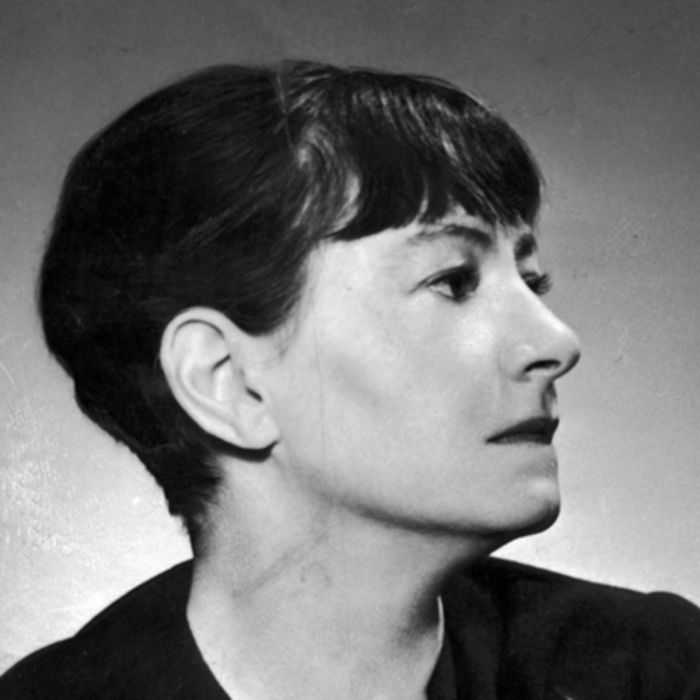
Dorothy Parker’s “A Telephone Call” explores various themes through the use of specific motifs. The telephone and the night serve as significant symbols that convey the central ideas of love, loss, and communication.
Motif: The Telephone
The telephone, a modern marvel of communication, becomes a symbol of both connection and disconnection. It represents the potential for intimacy and shared experiences, yet it also highlights the barriers that can arise in communication. The unanswered phone call becomes a poignant metaphor for missed opportunities and unfulfilled desires.
Motif: The Night
The night, often associated with mystery and solitude, serves as a backdrop for the emotional turmoil experienced by the speaker. The darkness and silence amplify the feelings of isolation and longing. The night becomes a symbol of the speaker’s inner world, where unspoken words and unspoken desires reside.
Theme: Love and Loss
The telephone call is a symbol of a lost love, a missed connection that evokes feelings of longing and regret. The speaker’s unanswered call represents the missed opportunity to reconnect with a past lover, a longing for what could have been.
The pain of loss is conveyed through the speaker’s use of imagery and metaphors, such as the “aching” telephone and the “dark” night.
Theme: Communication
The telephone call highlights the challenges and complexities of communication. The unanswered phone call represents the breakdown of communication, the inability to convey one’s thoughts and feelings effectively. The speaker’s frustration and longing reflect the difficulties of expressing emotions and the misunderstandings that can arise in human interactions.
Dorothy Parker’s wit and sharp tongue were legendary, and her telephone calls were no exception. She once quipped, “If you want to hear God laugh, tell him your plans.” For more insights into her humor and literary prowess, check out the theme worksheet 6 answer key . Parker’s acerbic wit and keen observations on human nature continue to entertain and provoke thought even today.
Literary Devices
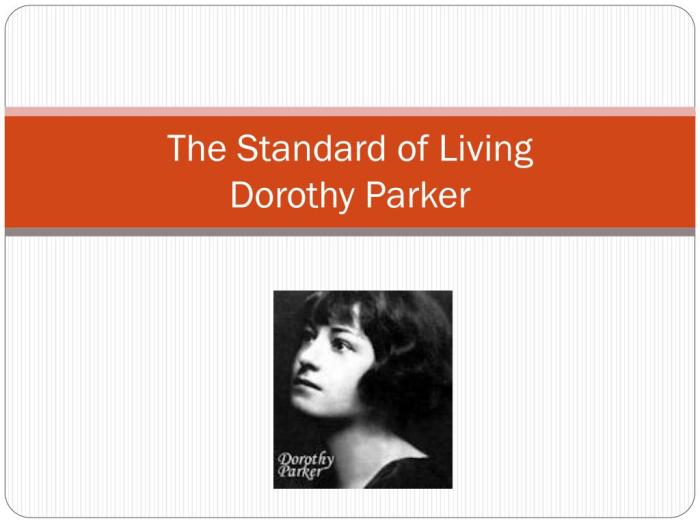
Dorothy Parker employs various literary devices in “A Telephone Call” to enhance its meaning and impact. These devices include metaphor, simile, and irony, which contribute to the poem’s exploration of themes such as love, loss, and communication.
Metaphor
Parker uses metaphors to create vivid and evocative imagery. For instance, she compares the telephone to a “strand of music” that connects the speaker and her lover. This metaphor suggests the intimate and ephemeral nature of their relationship, which is both fragile and fleeting.
Simile
Similes are also employed to draw comparisons between seemingly disparate elements. Parker describes the speaker’s heart as “like a stone” to convey its heaviness and lack of emotion. This simile effectively captures the speaker’s emotional numbness and detachment.
Irony
Irony is a particularly significant device in “A Telephone Call.” The poem’s title suggests a mundane and ordinary conversation, yet the content reveals a deeply emotional and painful experience. This irony highlights the disconnect between the speaker’s outward composure and her inner turmoil.
Cultural and Historical Context: A Telephone Call Dorothy Parker
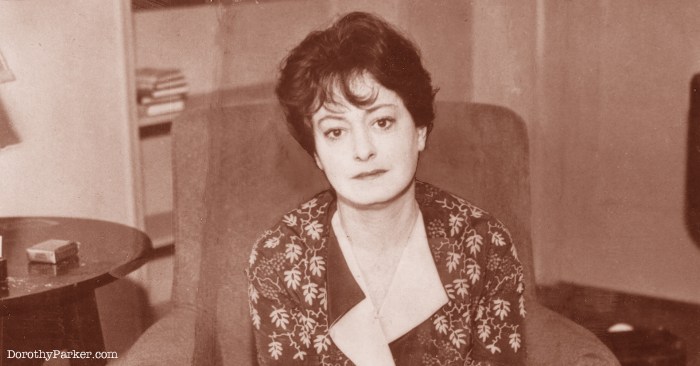
Dorothy Parker’s “A Telephone Call” emerged amidst significant social and technological transformations in the early 20th century. The advent of the telephone revolutionized communication, reshaping interpersonal relationships and social interactions.
The poem captures the evolving societal norms surrounding technology and its impact on human connection. It reflects the growing reliance on technological advancements while simultaneously highlighting the potential for isolation and disconnect.
Social Changes
- The telephone facilitated instant communication, breaking down geographical barriers and enabling real-time conversations over long distances.
- It fostered a sense of immediacy and accessibility, altering the pace and rhythm of daily life.
- However, it also raised concerns about privacy and the blurring of boundaries between public and private spheres.
Technological Advancements
- The telephone’s widespread adoption marked a technological leap that connected people like never before.
- It played a pivotal role in business, journalism, and social networking, transforming the way information was disseminated and shared.
- Despite its convenience, the telephone also introduced challenges, such as information overload and the need for etiquette in telephone conversations.
Critical Reception and Legacy

Upon its publication in 1925, “A Telephone Call” garnered widespread critical acclaim. Critics lauded Parker’s incisive wit, sharp observations, and ability to capture the complexities of modern relationships in a concise and poignant manner.
The poem’s enduring legacy lies in its enduring relevance and its significant contribution to American literature. “A Telephone Call” remains a timeless and insightful portrayal of the human condition, exploring themes of love, loss, and the complexities of communication.
Critical Reception, A telephone call dorothy parker
- Parker’s contemporaries praised the poem’s wit and cleverness. The critic Edmund Wilson wrote, “The telephone call is a perfect example of Parker’s ability to use language with precision and economy.”
- Critics also noted the poem’s emotional depth and its ability to capture the nuances of human relationships.
The poet Edna St. Vincent Millay wrote, “Parker’s poems are like little gems, polished and perfect.”
Legacy
- “A Telephone Call” has become one of Parker’s most anthologized and celebrated poems, appearing in numerous collections and textbooks.
- The poem’s influence can be seen in the work of later poets, such as Sylvia Plath and Anne Sexton, who admired Parker’s confessional style and sharp wit.
- “A Telephone Call” continues to resonate with readers today, offering a timeless and insightful commentary on the human experience.
Question & Answer Hub
What inspired Dorothy Parker to write “A Telephone Call”?
The poem is believed to have been inspired by Parker’s own experiences with unrequited love and the longing for connection.
What is the significance of the telephone in the poem?
The telephone serves as a symbol of both connection and disconnection, representing the desire for communication and the frustration of unanswered calls.
How does Parker use literary devices in “A Telephone Call”?
Parker employs a range of literary devices, including metaphor, simile, and irony, to convey the poem’s themes and create a vivid sensory experience for the reader.
